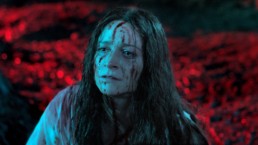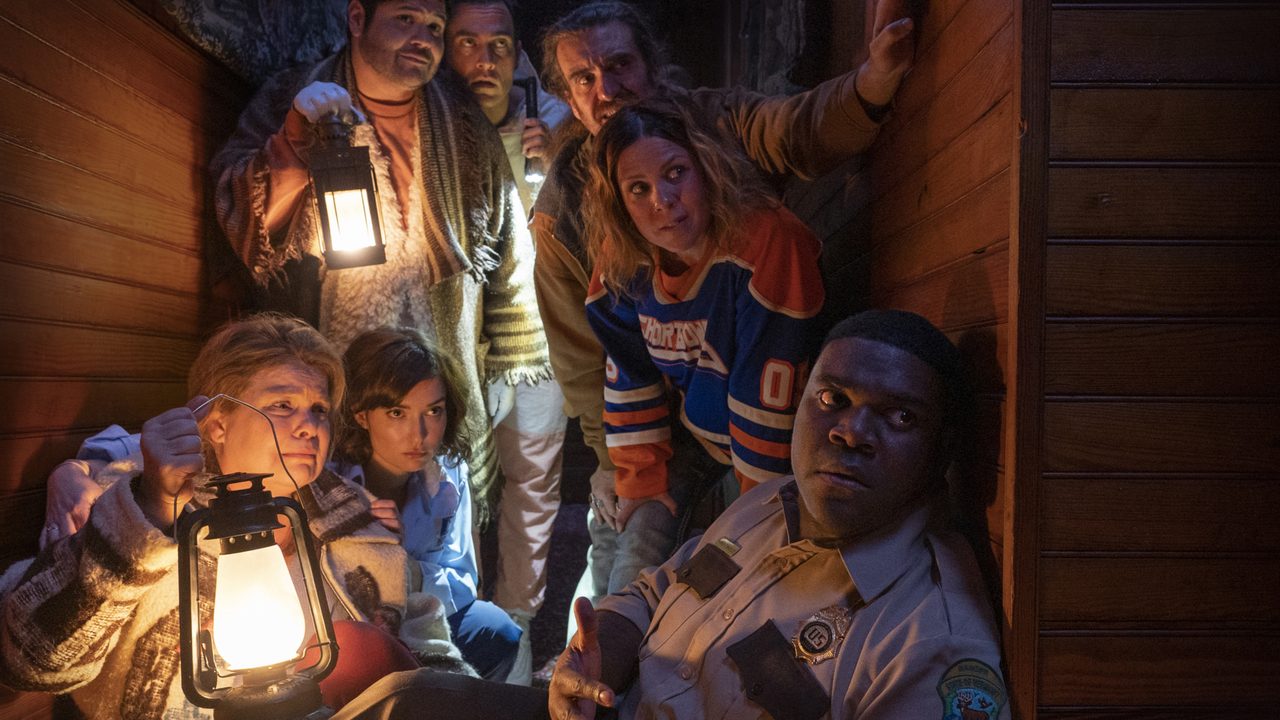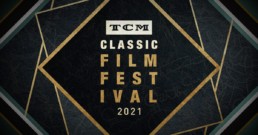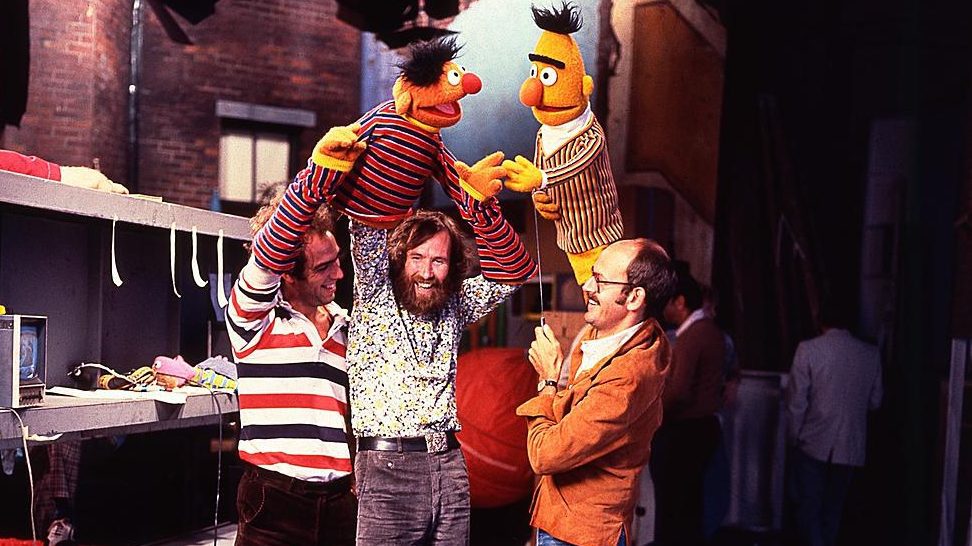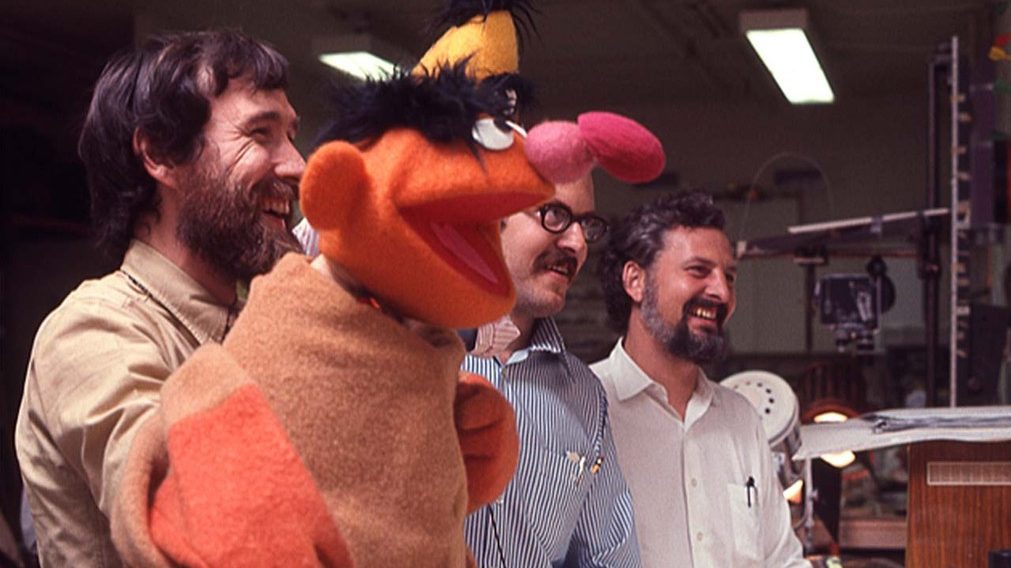'Wolfgang' Tribeca Review: The Chef, the Myth, the Legend
You know his name, you've likely seen him on television, and chances are that you have eaten at one of his many restaurants. But do you know the story of the legendary Wolfgang Puck?
Directed by David Gelb (Jiro Dreams of Sushi, Chef's Table), Wolfgang is a new documentary that shows the rise of Wolfgang Puck, the world's first celebrity chef.
Arriving soon on Disney+, Gelb weaves together this portrait of the naturally charismatic, energetic, and tireless Wolfgang Puck, whose ascent as one of the world's most successful and well-known chefs comes with an incredible life filled with hardships that audiences likely haven't heard.
It's clear how Wolfgang Puck became so beloved as a media figure. His naturally vivacious personality and charismatic showmanship, with that strong Austrian accent, made for a perfect fit for a newly emerging television and celebrity market. A blitz of TV clips featuring Wolfgang dazzling audiences with open flame cooking wows the viewer and sets the stage for his story and rise to stardom.
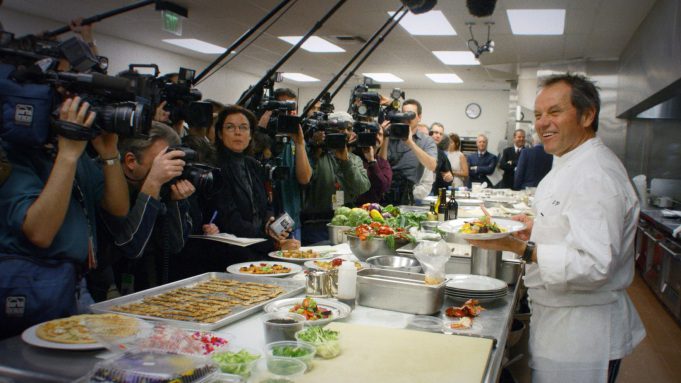
In parallel to seeing a seemingly infinite amount of clips showing his meteoric success, we're also taken to Wolfgang's hometown of Austria, where the chef, in the present day, walks through old places and recounts his memories along the way. It's here where Wolfgang gives the chef the space and time to get personal in a way that we haven't yet seen or heard before.
Wolfgang reveals that growing up as a child, he was quite poor and didn't have much to eat. The kitchen became a refuge to him, the only place that he said he ever felt safe.
More troubling is the revelation that he and his family endured the hand of an abusive stepfather during his childhood, instilling fears in him at a very young age. And after being fired at an early age from one of his earliest jobs cutting potatoes for a restaurant, he found himself overlooking a bridge and contemplating whether or not to jump.
But Wolfgang's resolved not to give up on his passion, and propelled him to move to Los Angeles at the age of 24 to continue cooking. An early job at a steak joint was disastrous (the doc reminds us that American cuisine in the 70s was bland and uninspired).
Things would soon change though after Wolfgang was hired at Ma Maison, which, after evolving the menu and growing to become the head chef, became one of the most popular eateries in LA.
After toiling for creative control with Ma Maison's restauranteur, Wolfgang set out to create his own restaurant–Spago–which instantly became the number one restaurant for Hollywood A-listers to dine, do business, and be seen at. Perched on Sunset Boulevard in West Hollywood, we see how food critics and chefs alike gush over how, with its open kitchen and menu offerings like salmon pizza and salads (inventing a new "California Cuisine"), Spago and Wolfgang changed the way things were done forever.
Wolfgang's natural taking to the world of celebrity would soon thrust him into making national TV appearances, leading to building a brand and empire that would make him universally known as the world's first celebrity chef. The documentary points out that his appearances on national TV led the way for culinary personalities and entertainment to emerge, such as The Food Network, Emeril, and reality cooking show competitions.

There's a brief moment amidst all of the chaos where Wolfgang acknowledges that his tireless work ethic was likely motivated by the feeling that everything in his life could fall apart at any moment, likely due to the fears instilled in him during childhood.
Wolfgang feels like the story of a man who, after tirelessly working to build a business empire and now entering the twilight of his years, is finally slowing down to reflect and understand the story of his life. With all of his successes, though, come failures, and large personal ones at that: the end of his marriage to Barbara Lazarof after 19 years (Lazarof helped Wolfgang open Spago and remains the unsung hero of its success) and time not spend with his children during his busiest times are moments that he now reflects upon with remorse.
As we are able to gather, turning away from family was a constant in Wolfgang's life. There's a present-day moment where Wolfgang, along with his sister, visits the grave of his grandmother. His sister brings up that when their grandmother was dying, she wanted nothing more than to see Wolfgang by her side. He acknowledges that he was elsewhere, working, and doesn't intend to linger on the moment or unpack it any further. As the scene ends without much fuss, we are left to realize that the price that his greatness cost him leaving his family.
Although director David Gelb doesn't pry too far in the way of emotional investigation, one of the things that Wolfgang offers is Gelb's trademark aesthetics that make his culinary filmmaking so mesmerizing. Gelb shoots food so expressively and cinematically that it captures the magic in food, and it's exactly what's needed to make Wolfgang's story come to life.
Wolfgang feels less emotionally deep than Jiro Dreams of Sushi, which remains the superior film of the two. Because it only briefly touches on darker moments instead of looking to offer tougher emotional breakthroughs, Wolfgang feels like the master chef wants to tell his life's story, but still hasn't come to understand its meaning himself. When Wolfgang asks in a fleeting moment, "Who am I? A chef, brand, restaurant, character?" he doesn't follow to provide an answer. And so we are left to believe that he is everything he's created all at once: the chef, the myth, and the legend.
'Censor' Review: Traumas Repressed Within VHS Era Horror
Before going into the fun new horror film Censor, you should know what a "video nasty" is. A colloquial term coined in the United Kingdom in the 1980s "video nasties" were the films distributed on video cassettes that were criticized for their violent content by the press and various religious organizations. In her directorial debut, Prano Bailey-Bond puts these graphic films at the center of the story about a film censor (Niamh Algar) who, after viewing a strangely familiar video nasty, sets out to solve the past mystery of her sister's disappearance and embarks on a quest that dissolves the line between fiction and reality.
Expression
While operating within the familiarities of the horror genre that fans will hope for, Prano Bailey-Bond also flexes her deeper knowledge and appreciation of the genre with the plot's central connection to "video nasties." The fun Bailey-Bond brings to the screen with the video nasties' campy kills, titles, and even videocassette jackets are going to be some of the film's most memorable moments. And on a more personal level, it's clear that Bailey-Bond is expressing her voice through the central character Enid (Niamh Algar), a young and beautiful woman who is more interested in losing herself in her career of grisly fantasy than following a more traditional life path. Censor has a strong and empowering female perspective about being a woman both in the workplace and in danger, which Algar is game for the whole time.
Expression: 4 out of 5 stars
Daring
It's always fun to see a movie where evil isn't just a boogeyman but something deeper, more spiritual, and the descent that we take following Enid's psychological unraveling is a fun journey. For a film that is so knowledgable about video nasties and the fun that's had in staging violence in film, though, Censor's disturbances are aimed at the more heady paranoia of mental instability rather than blood-spurting horror sequences. There are only one or two jump scares and a few moments of grisly slasher fun, all handled quite mildly. I wonder if Censor had allowed itself to indulge in the genre's more bloody mayhem what further fun we could have had within this set-up.
Daring: 3 out of 5 stars
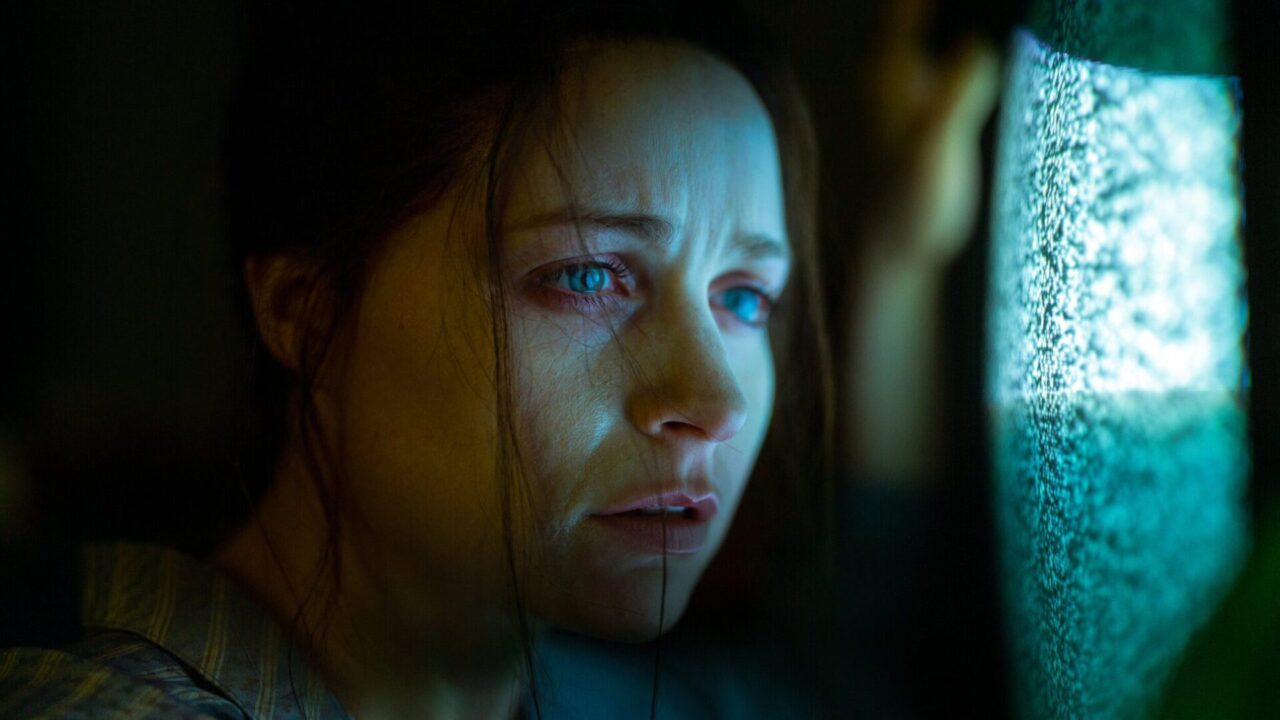
Craft
For a modestly made indie movie, there is still distinguishable filmmaking skill on display. One accomplishment capturing 1980s UK style where one might assume Stranger Things is happening across the pond. The throwback to the videotape era will always be fun to indulge in and seeing Enid watch these horror films within this horror film gives Censor further depth. Then, of course, there are the slasher elements that are handled well. What I found most impressive were the moments where the filmmaking style shifts, occurring when Enid loses grip of reality and we would slowly track into the screen and the world of horror fun. The slow use of color that consumes her drab world – that of red and paranormal blue – along with tilted camera framing blossoms into a large world of real vision and scope.
Craft: 3 out of 5 stars
Impact
For a film with shocking and grisly deaths, Censor actually ends up hitting on the softer side in terms of an all-out gorefest. However, the deeper human truth that Bailey-Bond expresses here is even more terrifying in its relatability. It's telling that after her sister goes missing during childhood, Enid grows up to become a film censor, choosing to submerge herself in such gruesome and violent content, striving to single-handedly extricate the most horrific moments from the public's (and specifically children's) consumption. But when a particular video nasty becomes the center of a national headline for an inspired real-life murder, Enid is left shaken, and the trauma of her horrific past haunts her again. Bailey-Bond shows the unconscious ways that we try to stave off events that are too hard to make sense of in a disturbing moment and what worlds we then create for ourselves to cope. In asking the audience what fears are we running from, and what actions we take in an attempt to push those unendurable memories out of our minds, Censor is a film that will stick around and stir inside our minds.
Impact: 3 out of 5 stars
Conclusion
At 84 minutes, Censor is perfect for casual audiences looking for a fun time with a horror movie, as well as for the more seasoned horror fans looking to indulge their appetites with the throwback to "video nasties." If you were wondering what a video store clerk's re-imagining of Midsommar and Mandy might look like, you might want to queue up Censor quickly.
Conclusion: 3.5 out of 5 stars
84 minutes. Not rated. 'Censor' begins playing in LA theaters this Friday at The Landmark Westwood, Alamo Drafthouse and the Laemmle Glendale.
https://www.youtube.com/watch?v=KRrhXjH1M70&ab_channel=MagnoliaPictures%26MagnetReleasing
Tribeca Film Festival 2021: 12 Films We’ll Be Watching From Home
As another example of this country's slow yet exciting return to normalcy, Tribeca Film Festival 2021 begins on Wednesday, June 9th, with in-person screenings taking place in New York. Along with theater attendees, the festival will also be available to the public through "Tribeca At Home," a new virtual platform which will bring the festival's films and programs to audiences nationwide to enjoy in the comforts of their homes (which is how Cinemacy will be joining this year as well).
Below are 12 films that we're most looking forward to seeing at the Tribeca Film Festival. You can check out the full list of films available through through "Tribeca At Home" here, or by following the links to buy tickets to the individual screenings.
False Positive (United States, 92 minutes)
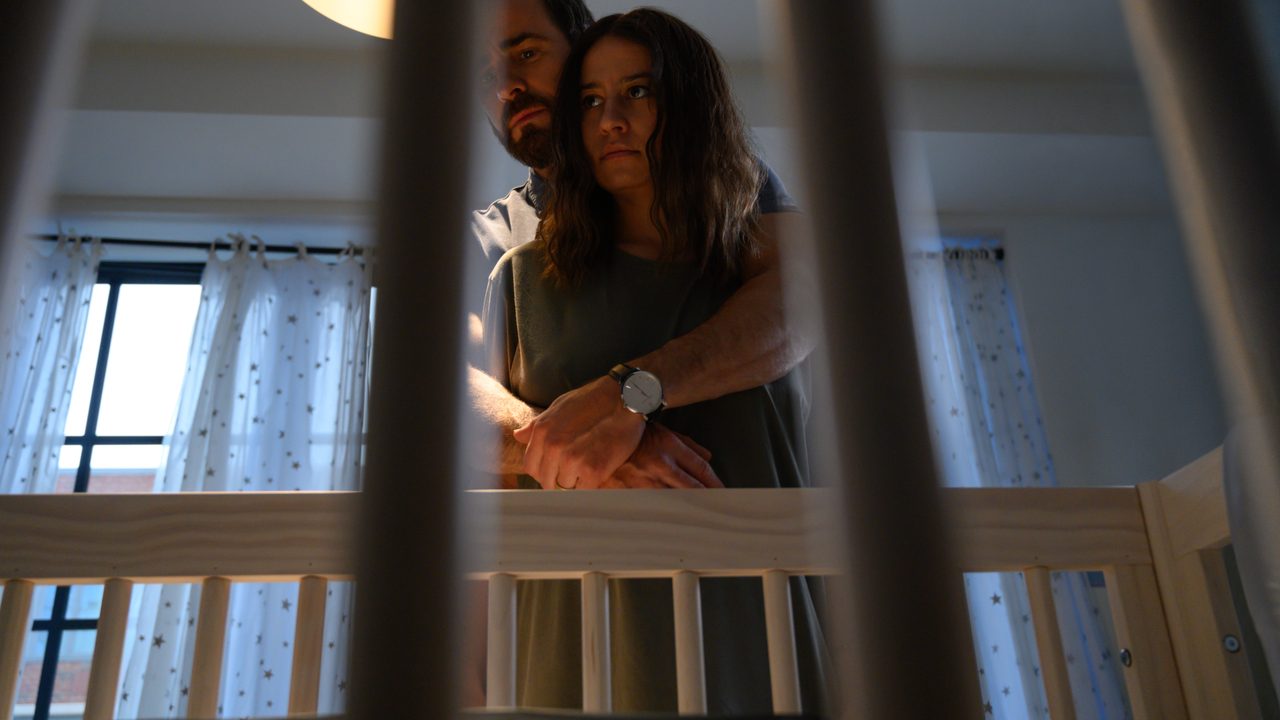
Genre: Thriller
What it's about: After Lucy (Ilana Glazer) and Adrian (Justin Theroux) encounter difficulties with conceiving, charismatic and world-renowned reproductive specialist Dr. Hindle (Pierce Brosnan) appears to be the answer to the couple's prayers–that is, until cracks in the facade arise which threaten Lucy's grasp on reality.
Why we're looking forward to it: Broad City's Ilana Glazer at the center of a Rosemary's Baby-esque thriller? Sign us up.
Available to watch at home starting Fri June 18 - 6:00PM. BUY NOW
Roadrunner: A Film About Anthony Bourdain (United States, 118 minutes)
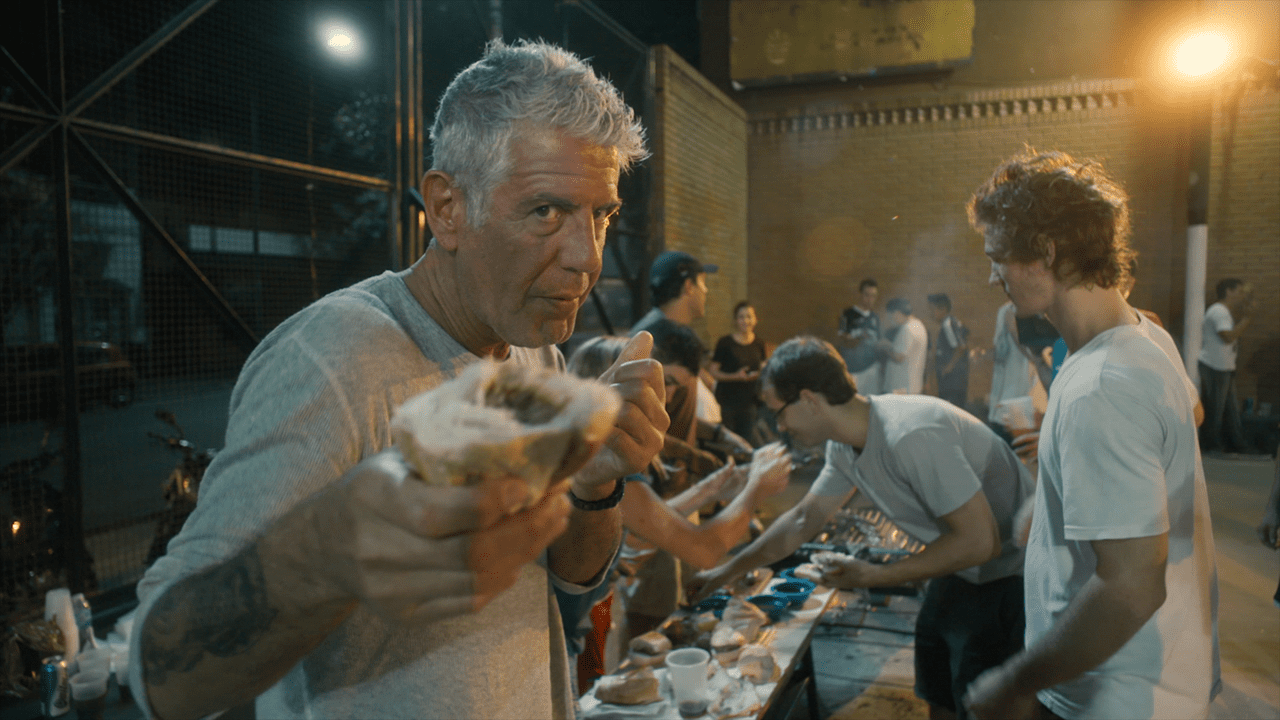
Genre: Documentary
What it's about: A look at the life of the cultural-culinary-intellectual force that was Anthony Bourdain, whose outsized personality, insatiable curiosity, and passion for food, travel, and culture tapped into a deeper humanity that inspired fans and audiences alike.
Why we're looking forward to it: The documentary is sure to warm the hearts of longtime fans by celebrating Anthony Bourdain's extraordinary life, as well as leave life lessons that all audiences can learn from.
Available to watch at home starting Mon June 14 - 6:00PM. BUY NOW
Italian Studies (United States, 81 minutes)

Genre: Women, Drama
What it's about: A "neorealist wonder of a film" that finds a mysterious woman (Vanessa Kirby) wandering the streets of Manhattan in confusion, and inexplicably drawn to a charismatic teenager, who she follows on an adventure through the cityscape and into the unknown.
Why we're looking forward to it: After seeing Vanessa Kirby's shattering Academy Award-nominated performance in last year's Pieces of a Woman, we have been eagerly waiting to see her in her next starring role.
Available to watch at home starting Fri June 11 - 6:00PM. BUY NOW
7 Days (United States, 86 minutes)

Genre: Comedy, Drama, Romance
What it's about: The only thing worse than being set up on an awkward pre-arranged date by your old-fashioned parents is when COVID forces you to shelter-in-place together, which is what happens to Ravi (Karan Soni) and Rita (Geraldine Viswanathan), making for a funny premise and relationship comedy.
Why we're looking forward to it: This COVID-era rom-com premise sounds totally of-the-moment and fun, made even more appealing with the casting of Bad Education's Geraldine Viswanathan and Deadpool's Karan Soni.
Available to watch at home starting Fri June 11 - 6:00PM. BUY NOW
Werewolves Within (United States, 97 minutes)
Genre: Horror, Comedy, Mystery
What it's about: After a snowstorm traps forest ranger Finn Wheeler (Veep’s Sam Richardson) and a colorful array of residents inside The Beaverfield Inn, Wheeler must play the reluctant hero and figure out what, or who, is racking up a body count and shrinking Beaverfield’s population.
Why we're looking forward to it: College Humor's Josh Ruben's directorial debut!!!
Available to watch at home starting Sat June 12 - 6:00PM. BUY NOW
Catch the Fair One (United States, 85 minutes)
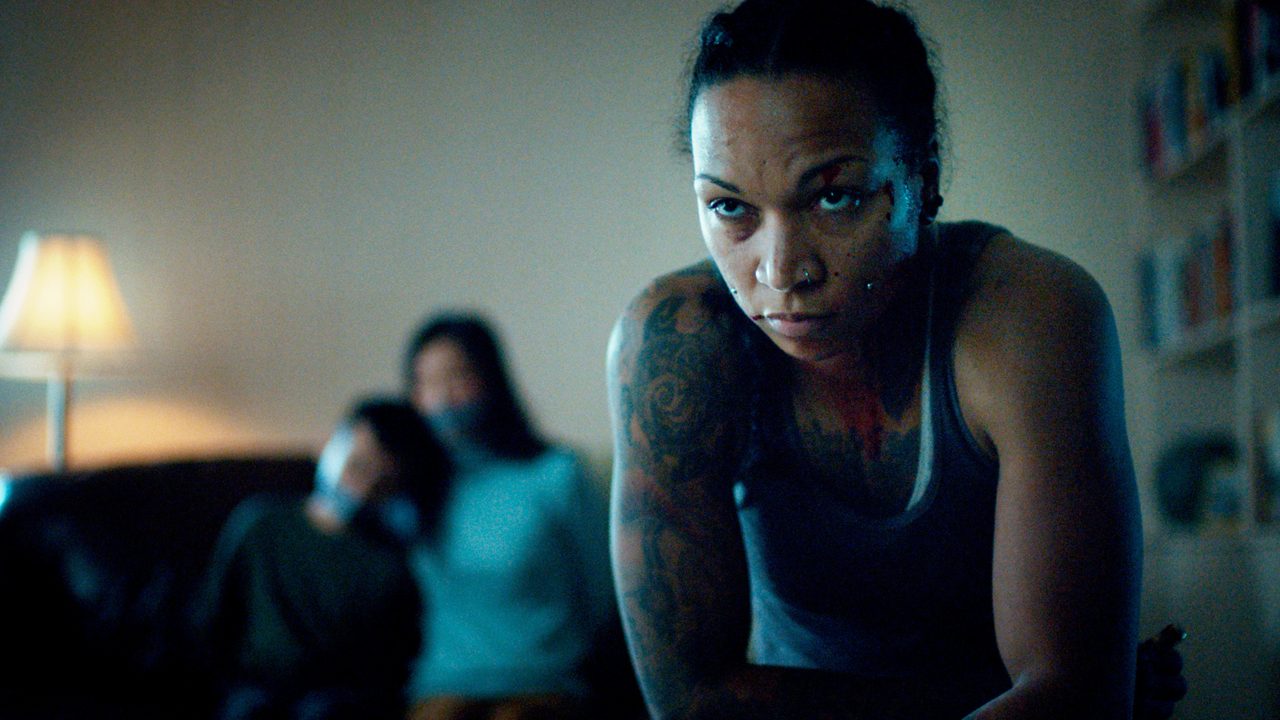
Genre: New York, Action, Thriller
What it's about: A Native American woman and former boxer embarks on the fight of her life when she goes in search of her missing sister, intentionally getting entangled in a human trafficking operation in order to retrace the steps of her kid sister and work her way up the chain of command to find the man responsible.
Why we're looking forward to it: An absorbing revenge thriller that sounds similar to Lynne Ramsay's You Were Never Really Here and executive produced by Darren Aronofsky sounds like one of the most exciting films of the festival.
Available to watch at home starting Mon June 14 - 6:00PM. BUY NOW
Reflection: A Walk With Water (United States, 80 minutes)

Genre: Documentary, Environmental
What it's about: Taking a several-hundred-mile trek on foot along the Los Angeles Aqueduct, Filmmaker Emmett Brennan joins like-minded activists on a mission meant to raise awareness about California’s water crisis, making the compelling argument that society has lost touch with this delicate and crucial place water occupies in the environment.
Why we're looking forward to it: The fact that the American Southwest is current experiencing a disaster-level water draught makes this documentary feel like a prescient and vital call-to-arms for everyone to learn from.
Available to watch at home starting Wed June 16 - 6:00PM. BUY NOW
Bernstein's Wall (United States, 100 minutes)
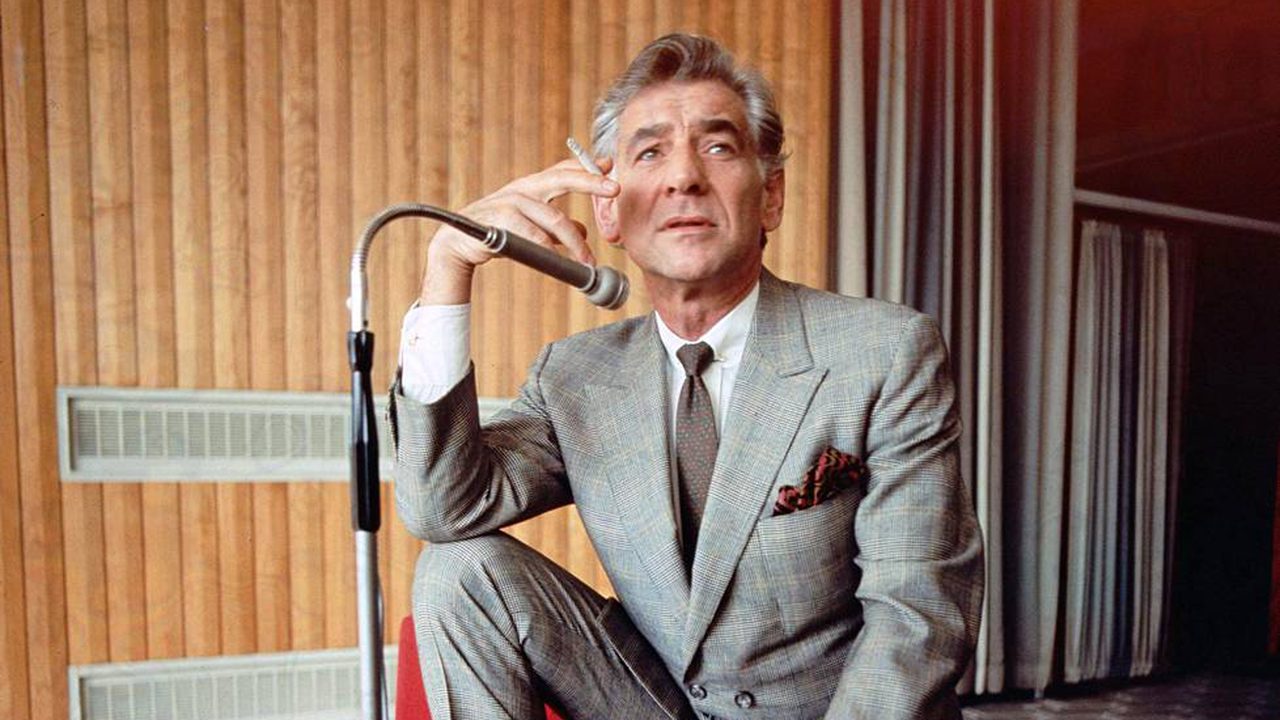
Genre: Documentary, Art
What it's about: In this enlightening look at one of the greatest classical music figures of the 20th century, director Douglas Tirola mines a rich trove of interviews, television appearances, home movie footage, photos, letters to craft a comprehensive look at Leonard Bernstein, whose passion and drive took him well beyond the marvelous music he wrote and conducted.
Why we're looking forward to it: This is very much looking to be the year of Bernstein, as Bradley Cooper is set to direct and star as the late composer for Netflix, as well as seeing Spielberg bring Bernstein's famous West Side Story to the big screen once again.
Available to watch at home starting Mon June 14 - 6:00PM. BUY NOW
Wolfgang (United States, 78 minutes)

Genre: Documentary, Food, Biography
What it's about: A documentary on legendary chef Wolfgang Puck that pushes past his sunny superstar persona and storied career in Los Angeles with the opening of the celebrity hot spot of the 80s and 90s, Spago, to revisit his birthplace in Austria and reveal an abusive childhood that pushed him to flee home and fight for a life of his own as a teenager.
Why we're looking forward to it: From acclaimed filmmaker and Tribeca alum David Gelb (Jiro Dreams of Sushi, Chef’s Table) comes another mouthwatering delight of a film about one of the first “celebrity chefs” to rule the scene and a pioneer in the world of California cuisine.
Available to watch at home starting Mon June 14 - 6:00PM. BUY NOW
Wu Hai (China, 110 minutes)
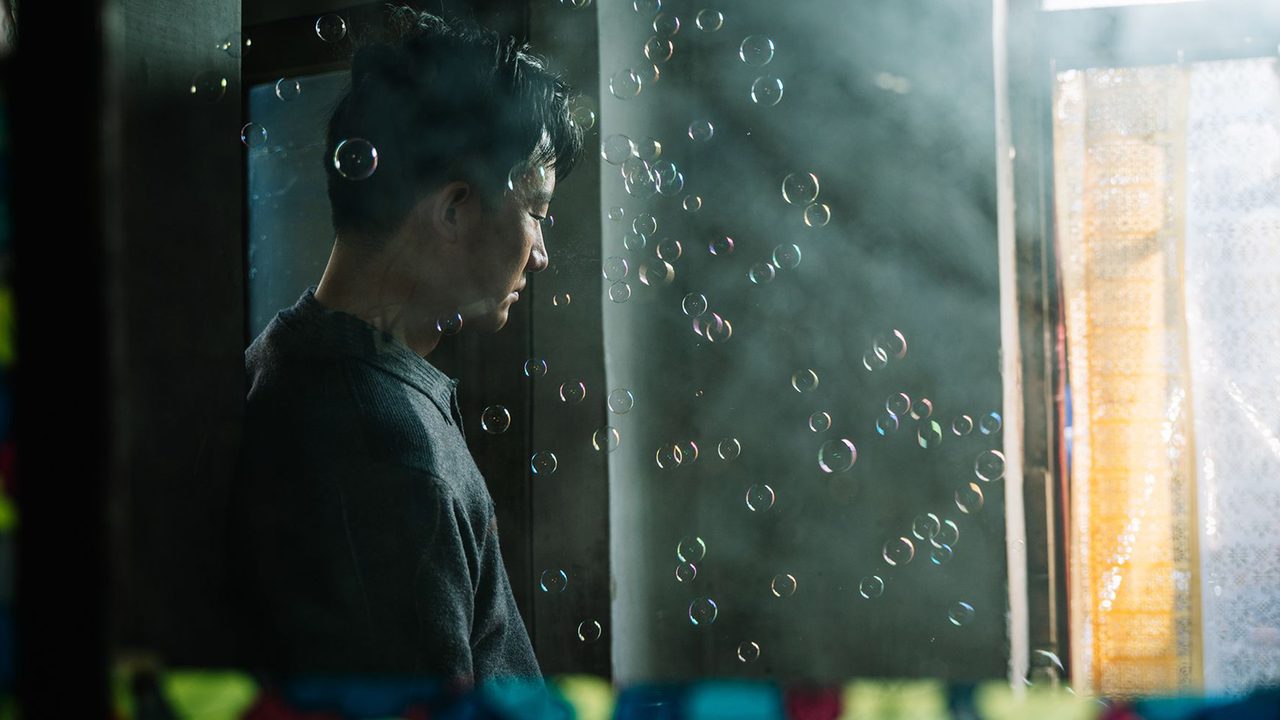
Genre: Drama
What it's about: When an ambitious business venture—a dinosaur theme park—goes bad, a small-time broker finds himself in an inextricable web of debt and desperation, and his attempts to stay afloat only entrap him further.
Why we're looking forward to it: We're looking forward to seeing this Chinese drama that's described as being "impressive in scope and style," as well as seeing what this dinosaur theme park is all about.
Available to watch at home starting Mon June 14 - 6:00PM. BUY NOW
Mark, Mary & Some Other People (United States, 90 minutes)
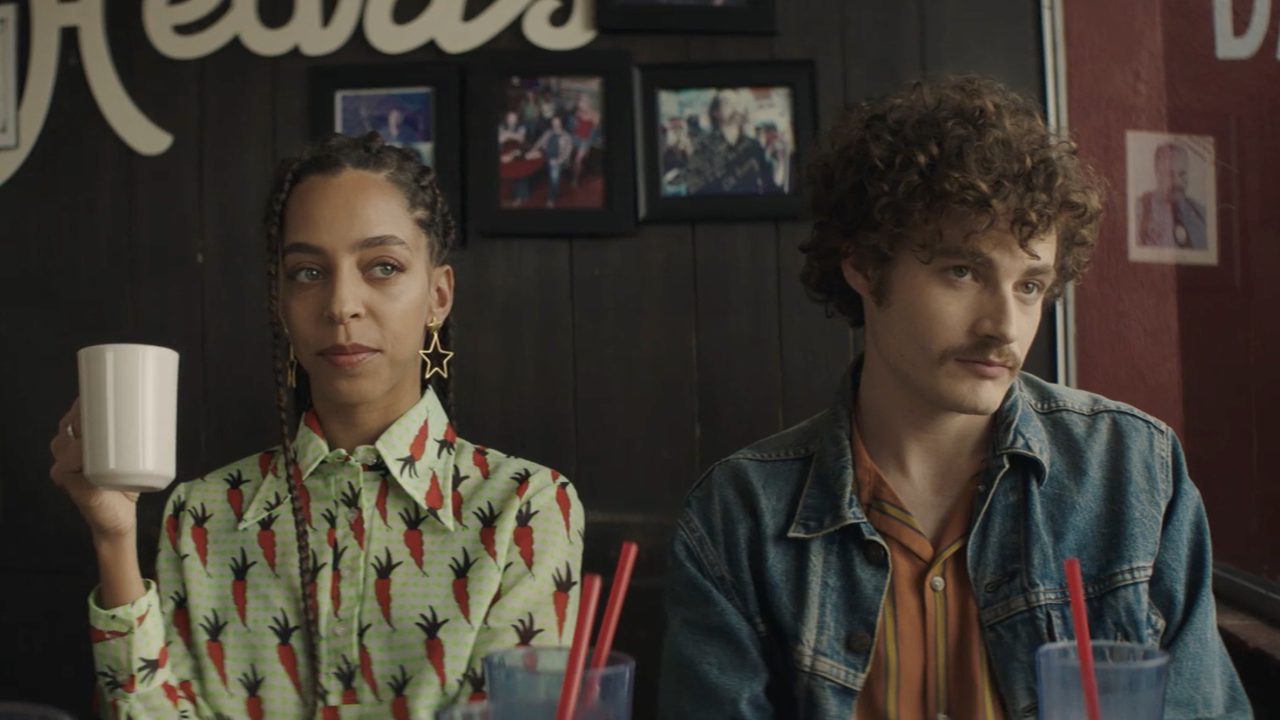
Genre: Women, Comedy, Drama, Romance
What it's about: A couple agree to “ethical non-monogamy”, and that's where this story really begins.
Why we're looking forward to it: Exploring the world of young love and polyamorous relationships, this film looks like it will be a fresh, fun and honest take on modern love and evolving cultural ideas about relationships.
Available to watch at home starting Fri June 11 - 6:00PM. BUY NOW
Kubrick By Kubrick (France, Poland, 73 minutes)
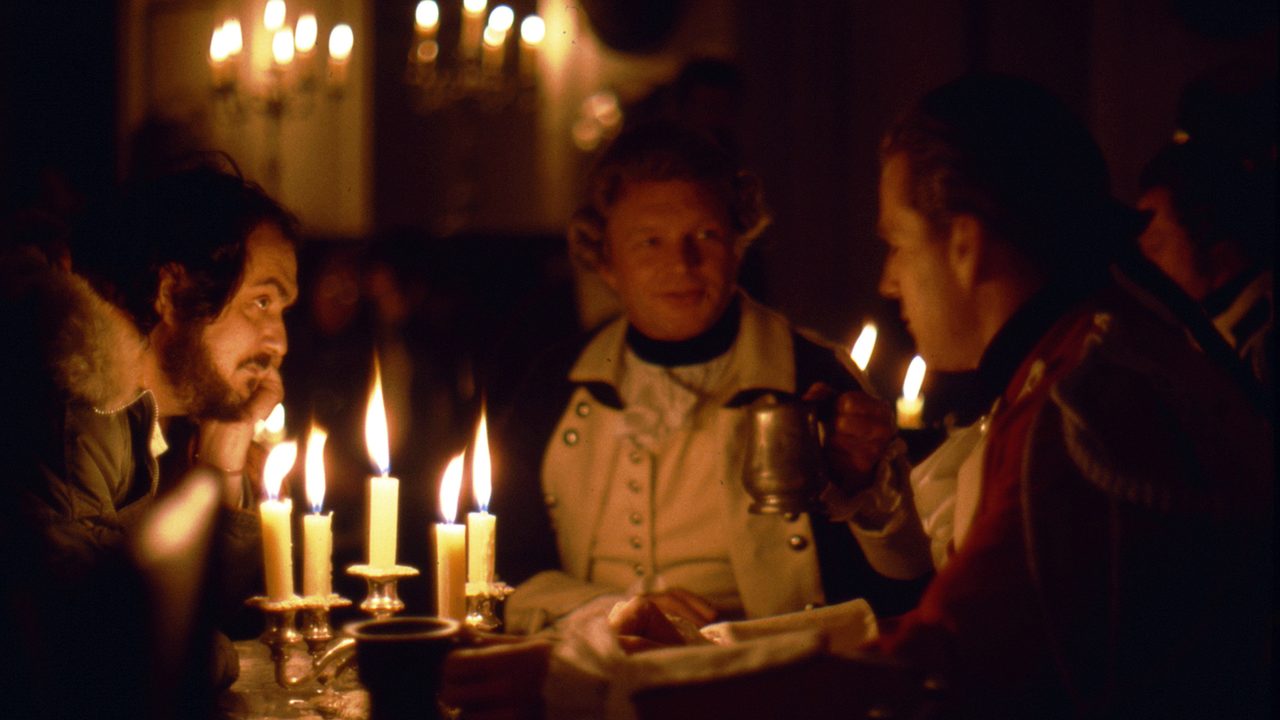
Genre: Documentary, Art
What it's about: A documentary on one of cinema's greatest masters, assembled by footage of his own soundbites.
Why we're looking forward to it: Being a huge Kubrick fan, this documentary feels like it will be a treasured gift and master class all in one.
Available to watch at home starting Fri June 11 - 6:00PM. BUY NOW
June Preview: 6 Lesser-Known Films Coming Out That You Should Know
With the passing of Memorial Day weekend bringing us even more fully into the summer season, it's an exciting time once again for movies, as previously unreleased titles get slated and theaters re-open in larger numbers across the country. Our June preview brings some highly anticipated new films–some that have played in film festivals earlier this year and last–that are finally able to be seen by audiences. We rounded up six films coming out this month that you should definitely have on your June preview radar to check out.
Which releases are you most looking forward to watching from our June preview? Did we miss a film? Let us know which releases from our June preview you'll be watching this month in the comments.
Undine (IFC Films)
https://www.youtube.com/watch?v=HD0ABeBzx3U&feature=emb_title&ab_channel=IFCFilms
I don't know much about Undine, except that early reviews are comparing it to Guillermo Del Toro's The Shape of Water (which makes me think this mysterious movie might get a bit... fishy). Undine is the name of its lead character (Paula Beer), a historian who, after being left by the man she loves, must fulfill an ancient myth of killing him and returning to the water. The latest from director Christian Petzold (whose films Phoenix and Transit have been well-received by critics, but which I've personally yet to see), I'm very excited to see what's in store with this film, as well as looking forward to Paula Beer's performance in the lead role (Beer won the Best Actress award at the Berlin International Film Festival where the film was also nominated for Best Picture).
'Undine' opens in select theaters and is available on Digital and VOD Platforms starting Friday, June 4th.
Holler (IFC Films)
https://www.youtube.com/watch?v=4-CFpCQbIek&ab_channel=IFCFilms
With a focus on southern Ohio's economy and commnity, Holler looks like it will continue the blue-collar themes brought to the screen in this year's Best Picture-winner Nomadland by exploring the evasiveness of the American dream. The story of a young person (Jessica Barden) who must decide whether to enter her town's scrap metal crew or pursue college and uproot herself from the trappings of her home, Holler is already making me wonder "what kind of life are we willing to settle for?" "What are we willing to risk by choosing to live in our comfortable living situations instead of daring for more?" Writer and director Nicole Rigel's film looks gritty, evocative, and authentic in all the best ways, and I'm looking forward to seeing Jessica Barden in what appears to be a breakout role.
'Holler' opens in select theaters and is available on digital Digital and VOD Platforms on Friday, June 11th.
Sweat (MUBI)
https://www.youtube.com/watch?v=vUcbYj2tOZM&ab_channel=MUBI
Movies about social media and the anxieties that it produces only continue to feel more real and relatable as they are made. Sweat looks to examine the role of influencer culture through three days in the life of a fitness instructor (Magdalena Kolesnik), whose enormous platform that fuels her social media celebrity status also brings the anxieties of danger from one of her threatening followers. Sweat appears to tap into the same anxieties that Bo Burnham's Eighth Grade brought but with a more potent element of suspense. With MUBI behind its release, you know that Sweat is one worth checking out. (Check out our capsule review of the film, which we saw this year at Chicago International Film Festival, here.)
'Sweat' opens in select theaters on Friday, June 18th and will start streaming on MUBI on Wednesday, July 23rd.
The Sparks Brothers (Focus Features)
https://www.youtube.com/watch?v=EOUsIYESOpM&ab_channel=FocusFeatures
If you're a fan of director Edgar Wright, then you already know that his extensive knowledge of obscure pop-culture music makes for some of the best needle-drop soundtrack moments in his films. In his documentary feature debut, Wright shines his spotlight on the band Sparks (who, if you're like me, may not have heard of before this documentary, but is very likely "your favorite band's favorite band"). As Wright shares with fan-boy energy and passion, Sparks's (made up by brothers Ron and Russell Mael) career spans over five decades in which the pair made 25 studio albums and 500 songs, but never saw the breakthrough recognition. which Wright attempts to course-correct here. I saw The Sparks Brothers when it premiered at Sundance earlier this year (read our full review here), and immediately after watching it dove into their vast back catalogue and started recommending my new discoveries to friends–which is what you'll be doing too in this summer of Sparks.
'The Sparks Brothers' opens in domestic theaters on Friday, June 18th.
I Carry You With Me (Sony Pictures Classics)
https://www.youtube.com/watch?v=ueldqg6D-Wk&ab_channel=SonyPicturesClassics
After premiering at Sundance Film Festival earlier this year, writer and director Heidi Ewing's I Carry You With Me won the Audience Award for the festival's Best of NEXT selection as well as the NEXT Innovator Award. The story of forbidden love between two young Mexican men (Armando Espitia, Christian Vazquez), the film looks emotionally warm and intimate. The film's handheld shooting and expressive color make this look stirring and artful, and appears to follow in the the steps of Brokeback Mountain and Call Me By Your Name. Heidi Ewing's visionary film looks like one to get swept away and a new lens on how love transcends cultural constraints.
'I Carry You With Me' opens in select theaters in Los Angeles and New York on Friday, June 25th.
Zola (A24)
https://www.youtube.com/watch?v=24KbaKlCDDI&ab_channel=A24
Of all of the films listed, Zola might be the film I'm most excited to see getting its release, as I saw the film premiere at Sundance Film Festival two years ago. A24's decision to hold the film until the start of this summer season feels right, as the freedom that we're collectively feeling is exactly the atmosphere that this wild story should be experienced in. Based on a true story of a stripper's Tweet-storm, in which she chronicled an insane road trip filled with sex, drugs and everything in between, gets a bigscreen adaptation. Director Janicza Bravo (Lemon) puts her comedic twist on the story, which trades Hangover-style insanity for a deadpan stillness that counters the extremity of the situations to its own comedic effect. Riley Keough, Coleman Domingo and Cousin Greg–I mean Nicolas Braun–star in the film, and Taylour Page as Zola in the titular role is who audiences will be thrilled to discover.
'Zola' opens in select theaters on Wednesday, June 30th.
'Swimming Out Till The Sea Turns Blue' Review: Delicate Yet Dense Poetry
Swimming Out Till The Sea Turns Blue is a film about resolve–which is what this documentary's subjects all speak to while recounting their lives, as well as what you'll need in order to watch this delicately crafted, yet densely, rich film. Following three prominent Chinese authors—Jia Pingwa, Yu Hua, and Liang Hong—born in the 1950s, 1960s, and 1970s, respectively (and all from the same Shanxi province), the figures recount stories of hardship and oppression they faced that shaped who they would be as artists, and how those experiences would affect the Chinese nation on the whole.
Expression
You can see it in their faces, and hear it in their rich stories, that this is a deeply personal film both to the speakers, filmmaker Jia Zhang-Ke, and for the Chinese culture at large. And while that much is applauded, the stories themselves are quite simply, pretty difficult to follow. Spoken in the native Chinese language (with English subtitles) and told with a conversational nature that includes details of Chinese history, important years and events, locations, and figures, it's a lot to keep track of–especially as we aren't introduced into this world and would be better knowing who these people are beforehand so we can contextualize their stories better. Jia Zhang-Ke (Ash Is Purest White) captures their stories with soft compassion and curiosity, and also adds footage of modern-day China set to lush concerto piano to break up the interviews to create a softer, more dream-like experience. But while the expression is there, it is difficult to follow along and understand and connect with all the way through.
Expression: 3 out of 5 stars
Daring
Are you ready to sit and listen to people from another generation recount stories from their lives? Made up solely of interviews, the film isn't daring in its structure and is quite traditional and respectful in this way. However, it's daring in that it asks the audience to stay invested in these people and these stories throughout its two-hour runtime, as Jia Zhang-Ke does not make the film very accessible for average audiences to follow along with. There's a fascination in watching people of other cultures share stories and events that we have never heard before, but the non-traditional choice to remain on their faces without also using any sort of B-roll makes the film tougher to follow and connect with.
Daring: 2 out of 5 stars
Craft
There is clear craft in Swimming Out Till The Sea Turns Blue, as the film feels as delicately handled as a careful brushstroke of a Chinese character: all handled and presented with a light and graceful touch. Interviews are simply yet exquisitely photographed and staged. And there's calm, peaceful tranquility that moves the story along. Structurally, the film is broken into chapters with themes like family, food, and love but there's nothing beyond that like archival footage that could better connect the dots.
Craft: 3 out of 5 stars
Impact
Unless you are following along at every moment, the documentary is going to be a very challenging watch for average audiences. I struggled to follow along with the stories and both take in all of the information and then process that in real-time (again, the film could have been more accessibly made to clearly form the subjects). As a result, the impact was that I felt a general sense of generational evolution from old-world to new-world China. If you're able to give yourself over with rapt attention, the stories may connect even deeper for you than they did for me.
Impact: 2 out of 5 stars
Conclusion
Swimming Out Till The Sea Turns Blue is a finely made document of China's history recounted in detail in its present. It also feels like a vital piece of art that both chronicles and celebrates a time when Asian American and Pacific Islander heritage needs to be better understood by all cultures. That doesn't take away from the fact that it's still a very challenging watch. The language barrier and cultural divide are difficult, but it's also exactly this that means we shouldn't ignore it. History survives from the stories we tell and the words we share. So even though it may be difficult, there's a celebration in even attempting to give yourself over and try to learn other people's stories, which puts us on the road to connection.
Conclusion: 3 out of 5 stars
'Swimming Out Till The Sea Turns Blue' is now playing in New York and Los Angeles.
https://www.youtube.com/watch?v=16hdJtGpMp4&ab_channel=TheCinemaGuild
'State Funeral' Review: The Days Following Stalin's Death
If a country were to put its entire national identity into a government ruled by one political party, and if that one political party were to put its entire identity into one person–and if that person were to then die, leaving a vacuum of identity and direction in his wake–what would that look like? The answer can be seen in the new documentary State Funeral. At over two hours long and comprised entirely of restored footage shot over those historic days, the film captures the grandly-staged spectacles in which the Soviet Union mourned and serves as an unsettling depiction of how Totalitarian savior politics affects its citizens.
Expression
State Funeral relies on the emotions emitted from the faces of the people who fill the screen as they learn the news of Stalin's death on March 5th, 1953 (he passed away of a brain hemorrhage due to hyper-tension). What's fascinating is that all of the people–young, old, men, women, army members, citizens and workers alike–collectively mourn in the same solemn and stoic way; nearly expressionless, with the occasional breaking of tears. It's exactly what you would expect though, from a Communist nation whose political philosophy rested on a projected sense of emotional strength. Because of this, State Funeral is a mostly introspective experience that requires the viewer to look past these stone-walled faces and wonder what the uncertain and fearful thoughts are running through their minds throughout their mourning.
Expression: 3 out of 5 stars
Daring
State Funeral is daring in its form for the fact that it is composed entirely of assembled footage and without a "narrative," so to speak. For that reason it really is as much of an arthouse film as one could expect. What's more is that the footage and sequences play in long stretches, leaving lots of times to process the footage and feeling (it's a lot to ask of an unseasoned viewer, who, if they choose to stream the film digitally, might choose to watch it in stretches). So while cutting down on shot lengths and even using voice-over narration would certainly make the film more accessible, director Sergey Loznitsa presents the historical footage as objectively as possible to allow the audience to make up their own minds without over-influencing the events.
Expression: 3 out of 5 stars
Craft
The first thing you'll notice while watching is that all of this historical footage is pristinely restored and colored which makes for a photographic journey that transports you back in time. Alternating between black and white and colored footage, this fluid visual change-up is also welcomed for how it breaks up the viewing (which could otherwise feel repetitive due to the similarity in the footage that's presented). The film also uses silence to great effect, which feels eerie seeing lined-blocks and fully-filled town squares with large crowds totally quiet.
And then there's the film's editing: although it has no narrative, there is a naturally assembled arc that grows from the smaller pockets of villages that scales to the larger masses, whose scale of people mourning, whose scale looms large and proves powerful.
Craft: 3 out of 5 stars
Impact
Seeing the scope of the mourning is impactful in and of itself. Masses of crowds in the tens of thousands, drawings and tributes, and around 900,000 wreaths (okay maybe not that many, but there's certainly a ton), is all wild to see. It's also impactful to see how people mourn amongst the state-sponsored messages that are so present, which makes you realize as a viewer that you need to reframe from this trance and objectively witness the events in front of you: tens of thousands of people whose grief is manipulated through propaganda.
The film also allows the viewer to meditate on what a state-sponsored funeral would look like under Totalitarian rule (which, in recent American and world politics, makes one curious where those roads could lead). It's also impactful in that it offers a meditation on what it might be like to be a part of a directionless citizen body, knowing that every single person is consumed by the same unrest.
Impact: 4 out of 5 stars
Conclusion
State Funeral is a true cinematic treasure, and its existence stands as a landmark artifact for historians and cinephiles alike to see what the death of a leader under Totalitarian regime looks like. Its overall impact will rely on how much you're willing to extrapolate from it: if you're simply looking at the stunning images themselves, you'll certainly be impressed at what's on screen. But if you dive deeper you'll see the cinematic achievement for what it is, serving as a warning so that audiences can guard themselves from finding ourselves subjected to needing to attend something similar to it in the future.
Conclusion: 4 out of 5 stars
135 minutes. 'State Funeral' is available to stream on MUBI starting Friday, May 21.
https://www.youtube.com/watch?v=PB_ZPTjgeyI&ab_channel=MUBI
6 Films I Hadn't Seen Before the 2021 TCM Classic Film Festival
The TCM Classic Film Festival 2021 is one of the most cherished times of the year for cinephiles–myself included. Once again being held virtually (but with plans to return to Hollywood in 2022), the festival expanded its reach this year by including films on HBO Max (which I hope attracted new audiences).
I couldn't have been more thrilled, as there were a number of classic movies that I had not seen, and that I finally committed to watching as part of the festival which I listed below. A big thank you to TCM Classic Film Festival 2021. And in case you want to catch up as well, the films are all still available to watch on HBO Max for a limited time.
The Thin Man (1934)
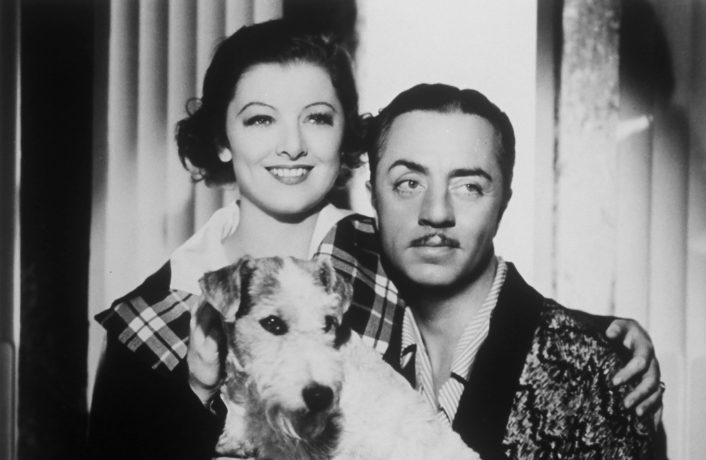
I didn't know that The Thin Man was the first film in a series of "Thin Man" movies. But after watching this first one, I can say that I am looking forward to seeing the rest. I was ready for a mystery of a film (which the plot does center around), but was totally enamored with the real magic of the film, which is all of the comedy that comes from the relationship between married couple Nick (William Powell) and Nora Charles (Myrna Loy). The hook in every movie is that, when a mystery is afoot, Nick–a retired detective–is drawn in to the case, but it's his wife Nora who gets him to take the case, and stays his faithful and sharp-minded partner along the way. Beyond all of the laughs The Thin Man earns, I loved seeing how these characters were written and performed with such admirable integrity and equal-footing. Sign me up for the next one.
Top Hat (1935)
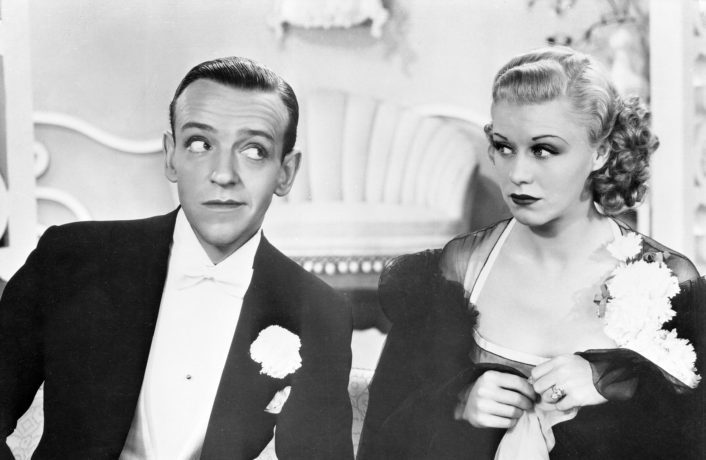
It was an easy choice to decide to queue up Top Hat, as watching Fred Astaire dance in a top hat and tuxedo as a kid is one of the very reasons that I fell in love with movies. Like many who love the iconic song and dance man, I was absolutely spellbound when I first saw Fred Astaire dance, through the screen and into my heart. I very likely might have even seen this movie as a child, but it's been so long that watching it felt like the first time, with a smile across my face the whole time. Top Hat has something of a silly story, but Fred Astaire humble charm is irresistible, and he keeps the film feeling effortless and fun. And the film's dance sequences–done with screen legend Ginger Rodgers–make Top Hat cinematic gold.
Bringing Up Baby (1938)
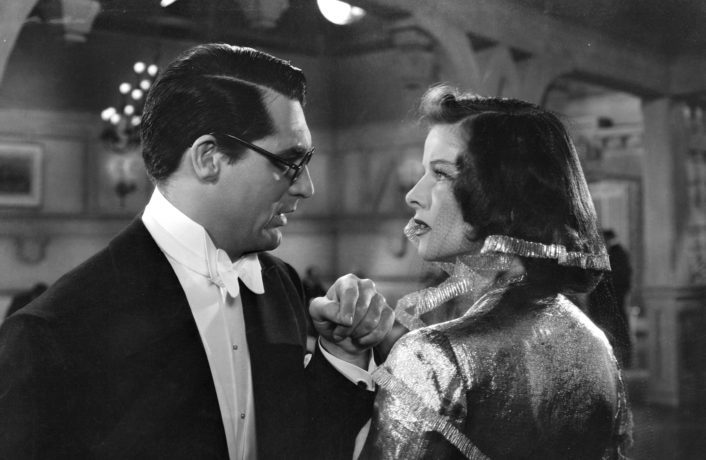
One of the most enjoyable parts of this year's TCM Classic Film Festival 2021 was the curated selections of Howard Hawks' films, which I hadn't seen before. I'd known of the screwball comedy genre at large, and had definitely seen references of its use in other films (rapid-fire dialogue and escalating mayhem). But seeing these films from Howard Hawks, who set the template and created the language for the genre that others have gone on to attempt to imitate, was a true treasure. I was over the moon to watch Bringing Up Baby, a perfectly executed romantic comedy that elevates the genre into a whole other level of sophistication. Cary Grant and Katherine Hepburn are movie magic together (I'm still laughing at Grant's exhausted shouting of "Just a minute, Mr. Peabody!"). Beyond this, the decision to add a leopard into the mix just makes the whole thing one of the very best.
His Girl Friday (1940)
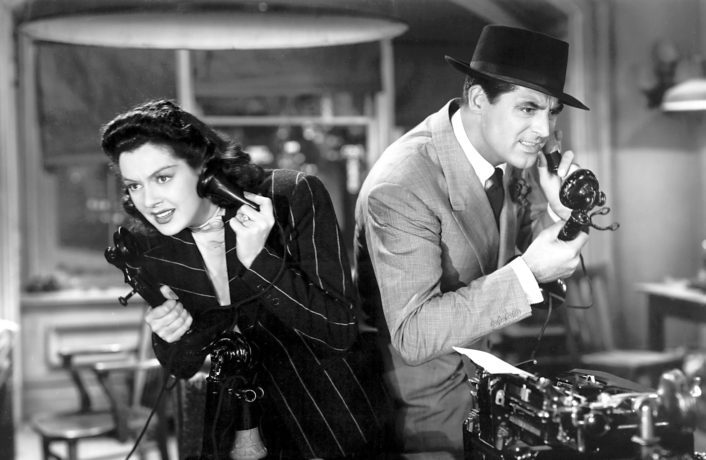
Doubling up with another Howard Hawks film, I must say, I wasn't expecting what I got with His Girl Friday. Where Bringing Up Baby set me up to think that Hawks' films would all be polished slapstick comedies (and inclined on silly romantic comedy plots), His Girl Friday surprised and delighted me to see an even more accomplished film, with more sophisticated direction and a smarter and more serious story that makes the film timeless. The thornier and more acidic comedy between a once-married newspaper publisher (Cary Grant) and a rapacious reporter (Rosalind Russell) gives the film wonderful friction, and the story's centering around a convicted murderer and their efforts of trying to get the scoop led to His Girl Friday being the most enjoyable surprise of the festival.
One Flew Over the Cuckoo's Nest (1975)
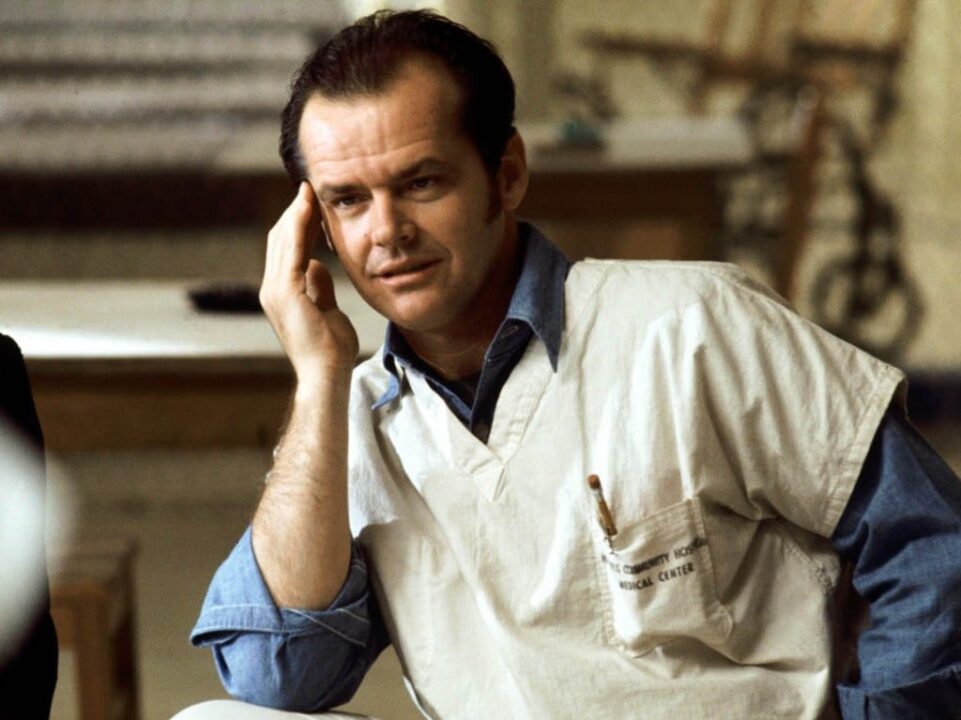
Here's where I start to get embarrassed over admitting which modern masterpieces I hadn't seen prior to TCM Classic Film Festival 2021. The fact that I had not seen One Flew Over the Cuckoo's Nest (one of only three films to win all 5 of the major categories in its Oscars year) is, I'll admit, one of the worst oversights in my movie-watching journey to date.
After watching the film, it's clear to me why Jack Nicholson is one of cinema's most important figures. His brand is "Jack," a manic live-wire who doesn't disappear into his characters so much as he brings them to life through the bravado of his own persona, which makes his performance here as R.P. McMurphy so one-of-a-kind. It's the supporting cast who surround Jack that makes the film what it is, with supporting performances from Danny DeVito that give the film its magic ingredients. And while I was expecting the Nurse Ratched character (Louise Fletcher) to be something of a more obviously villainous role, the understated control and precision she employs makes for a performance that will stand the test of time.
All The President's Men (1976)
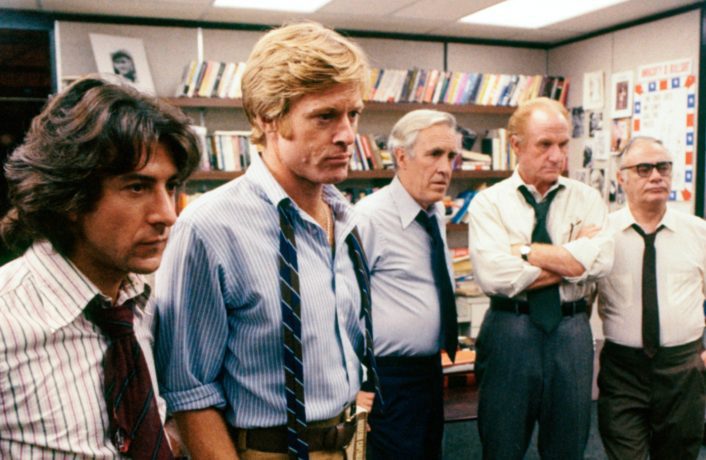
It was here at TCM Classic Film Festival 2021 that I finally watched All The President's Men, which was too long to have lived without having seen it. While the thriller films of today use things that they know will work to create suspense and tension, this film has all of those things, and it's about newspaper men. I was hooked from the start, and along for every minute of this film, which says a lot for how much peripherally I knew about the film.
The photography from Gordon Willis here is exquisite (it's great to finally see the split-diopter camera shots in context!). The production design of the newsroom, sounds of phones ringing and typewriter keys clacking, and detailed insert shots of note-taking and printed materials, all comes together to make an unforgettable world. Redford and Hoffman are both rock solid here, but I was taken in by Jason Robard's performance of The Washington Posts' newspaper publisher(for which he won an Oscar for Best Supporting Actor for).
'Street Gang: How We Got to Sesame Street' Review: What the TV Taught
Big Bird, Bert & Ernie, Kermit the Frog and Cookie Monster are as timeless today as they were when they debuted on "Sesame Street" in 1969. But what I didn't know about these lovable muppets was the incredible story behind the seminal children's TV show's creation, which the new documentary Street Gang: How We Got to Sesame Street reveals. The road that was taken by television producers and educators to create this one-of-a-kind children's program was radical, as they set out to create an education show that would answer: what if a show loved kids instead of sold to them? Could TV help kids? Could it be used to teach?
This became "Sesame Street," which changed the culture and has been cherished by children still to this day. Whether you do or don't know much about the show, Street Gang: How We Got to Sesame Street (based on the New York Times Bestselling Novel) should be required watching to see how art and altruism can go together to change the world for the better.
Expression
Street Gang: How We Got to Sesame Street is a feel-good film and was such a joy to watch, capturing the pure spirit that "Sesame Street" was created with. A smile hit my face the moment I saw Frank Oz and Jim Henson bring Bert and Ernie to life through their shared improvisational puppeteering (I forgot that "Yoda" also voiced Bert, Grover and Cookie Monster!). Seeing the late Caroll Spinney (who was interviewed for the film before his passing) recount playing the eight foot tall Big Bird as well as Oscar the Grouch is also fascinating to watch people acting on their pure imagination and creative artistry, all to connect to children who had never been communicated to before.
Beyond the amazing puppeteering, the documentary also captures the era in which the show was created, as well as New York's turbulent late-sixties' soul and spirit. Street Gang shows how America was a time of social inequality and civil unrest, and these stirring pictures and footage makes the story of "Sesame Street"'s creation even more affecting.
Expression: 4 out of 5 stars
Daring
At 1 hour and 47 minutes, Street Gang makes much of highlighting the radical reason of why the show was created: as a way to help teach basic education skills such as reading and counting to impoverished inner-city Black and minority children at a time when nothing like it had been done. It was a daring notion, and the doc introduces the main people behind the show's development such as Joan Cooney. The female television producer who was responsible for putting the show on the air, Cooney shares how she worked with the Federal Government's Office of Education to create the "Children's TV Workshop," a group of educators and TV producers that would create an entirely new style of children's educational show.
The biggest debt that Street Gang wishes to pay here is to Jon Stone, who we learn was the visionary and central force for what "Sesame Street" the show would become. Motivated by the disillusionment that the Vietnam War placed on the country, as well as a disgusted response to overt consumerism in children's TV shows, Stone was not only responsible for pioneering "Sesame Street"'s mix of education and entertainment, but for its daring decision to set the show in a gritty New York street environment (versus a fantasyland or suburban setting which was more popular), with the intent to relate to the Black and minority kids that they wished to connect with.
While Street Gang celebrates the radical spirit of "Sesame Street"'s creators, as well as how it broke socio-economic and political barriers with its proudly multi-racial cast, the documentary itself is more conventionally made and restrained. Rather than choosing to be more daring and an even-sharper critique of present day American education, Street Gang is ultimately more of a celebration than a "call to action."
Daring: 3 out of 5 stars
Craft
However, it's a smart decision that Street Gang plays more conventionally and that it chooses not to use any more obvious filmmaking flourishes beyond its use of single interviews and behind-the-scenes footage, which would likely be distracting to the incredible stories and genius in the footage that's already on the screen. The footage itself–grainy, weathered and worn–is a treasure to behold, and present-day interviews in which former cast members and creators talk about the show brings further magic to the stories. Rather than attempt to add additionally clever and artistically inventive media into the mix, Street Gang opts to impress by way of being more polished in its straightforward filmmaking approach, and a wider emotional range is felt because of it.
Craft: 3 out of 5 stars
Impact
There were multiple moments throughout Street Gang: How We Got to Sesame Street in which I was emotionally affected. Whether it was me genuinely laughing over brilliant puppeteering skits (at one point in time in entertainment, the only two shows on air that had comedy writers were "The Tonight Show with Johnny Carson" and "Sesame Street"), or politically enlightened, or emotionally moved, the doc spans a wide emotional range. Seeing then-musical composer Joe Raposo–who wrote the show's original songs and music–reminisce over writing Kermit's famous ballad "It's Not Easy Being Green," or seeing special guest star Jesse Jackson get a huge set full of kids to chant "I am somebody, I can change the world" made my eyes water. Beyond its bold artistic achievements, Street Gang also serves as a love letter and reminder to artists and educators everywhere, that with fearless creativity and a good heart, you can create something that can change the world.
Impact: 5 out of 5 stars
Conclusion
Street Gang: How We Got to Sesame Street is a fascinating and inspiring document of the story of how a fearless and good-willed group of creative artists and innovator taught disadvantaged kids that they could be something they never dreamed they could be. If you decide to re-visit Big Bird, Bert & Ernie, and the rest of the muppet gang, you'll remember what can be achieved when people's voices are heard–even if it's underneath multi-colored felt.
Conclusion: 4 out of 5 stars
https://www.youtube.com/watch?v=hQDydUQQNCA&ab_channel=ScreenMediaFilms


